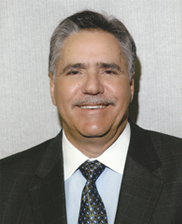By: Doug Baker, Vice President, Private Brands, Food Marketing Institute
I’ve been lucky to work with some true leaders in the private brands space during my time at FMI. Since FMI starting the Private Brand Leadership Council, I’ve been honored to have Ricardo Alvarez, who has been a president and CEO for several private brands companies during his career, serving on the Council and in the role of co-chair for three years. As Alvarez steps down from his leadership role, I’m excited to work with Neil Ritchey, vice president for sales and marketing with Ajinomoto Windsor, Inc., as our new co-chair. I took some time to chat with both gentlemen to get their views on issues facing the grocery private brands community.
Interview with Ricardo Alvarez
 You were one of the original members when FMI chartered the FMI Private Brand Leadership Council. Why did this group come together?
You were one of the original members when FMI chartered the FMI Private Brand Leadership Council. Why did this group come together?
Ricardo: When FMI approached many of us about this idea we honestly weren’t sure it was needed or would work. However, there was a need that wasn’t being met. The opportunity to bring together the private brand community, to improve collaboration between manufacturers and brand owners and to provide a voice for advocacy around regulatory and legislative topics that impact the private brand industry was the initial motivation.
The Leadership Council has been together now for six years and you have served as co-chair for three years. What are some accomplishments that you have overseen as co-chair?
Ricardo: We have spent the last couple of years working to increase the engagement of the private brand council into the fabric of the FMI membership, councils, and elements. We dubbed it; “moving from the island to the mainland.” FMI has such a vast amount of resources and tools, the private brand council was only touching a very few number of them. For example, we supported the FMI Government Relations department to provide feedback on Nutrition Labeling and Education Act (NLEA) update, the FMI Food Safety department to build an industry standard for recalls and traceability, and the many educational sessions through FMI Connect and the newly created Private Brand D.C. Summit.
What current emerging issues do you see facing the private brand industry?
Ricardo: I see transparency and all the ramifications; regulations and its impact to our community; all of this will require more collaboration between brand owners and manufacturers. Helping the industry to meet these demands from consumers and regulators has been a key objective of the Council.
Interview with Neil Ritchey, vice president for sales and marketing with Ajinomoto Windsor, Inc.
 You were an original member of the FMI Private Brand Council. What has been your favorite activity/position on the leadership council?
You were an original member of the FMI Private Brand Council. What has been your favorite activity/position on the leadership council?
Neil: Starting out we knew we had a big gap between private brands and CPG brands within the grocery industry. We felt that we were very much on our own island. I think the most rewarding thing for me over these years is to see the FMI Private Brands Council becoming a major part of the activities and thoughts within FMI. Having been able to serve as co-chair on private brands for our first participation in FMI Connect, and seeing the potential for growth has been very rewarding. With that said my favorite part of being part of the FMI Private Brands Council is the people I’ve met and get to work with.
As the incoming co-chair of the FMI Private Brand Council what will be your focus for the leadership council?
Neil: Our continued focus on education and transparency will have a big impact on our future direction, not only for private brands, but for the entire industry. As additional regulations impact our industry we have a great opportunity and responsibility to keep our membership up-to-date and provide tools to help negotiate all the regulatory demands. We should also work towards continued collaboration between brand owners and manufacturers, moving from transactional to a collaborative business approach. A side benefit, but a powerful one, is the socialization of our industry and the relationships we are able to build by working together with a focus on the overall good of our industry.
What does success look like for private brands over the next five years? How do you see the FMI Private Brand Council playing a role?
Neil: I see the FMI Private Brand Council being the gathering place for the industry for collaboration and education. I believe we will become one of the mainstays in the FMI organization having moved from an island to the mainland. I believe private brands will play a key role in future growth for our retailers providing a differential from CPG brands through high quality, healthy products and at a value, providing consumers the transparency and choices they desire.
For more information, visit www.fmi.org/PrivateBrands.

 Industry Topics address your specific area of expertise with resources, reports, events and more.
Industry Topics address your specific area of expertise with resources, reports, events and more.
 Our Research covers consumer behavior and retail operation benchmarks so you can make informed business decisions.
Our Research covers consumer behavior and retail operation benchmarks so you can make informed business decisions.
 Events and Education including online and in-person help you advance your food retail career.
Events and Education including online and in-person help you advance your food retail career.
 Food Safety training, resources and guidance that help you create a company food safety culture.
Food Safety training, resources and guidance that help you create a company food safety culture.
 Government Affairs work — federal and state — on the latest food industry policy, regulatory and legislative issues.
Government Affairs work — federal and state — on the latest food industry policy, regulatory and legislative issues.
 Get Involved. From industry awards to newsletters and committees, these resources help you take advantage of your membership.
Get Involved. From industry awards to newsletters and committees, these resources help you take advantage of your membership.
 Best practices, guidance documents, infographics, signage and more for the food industry on the COVID-19 pandemic.
Best practices, guidance documents, infographics, signage and more for the food industry on the COVID-19 pandemic.
